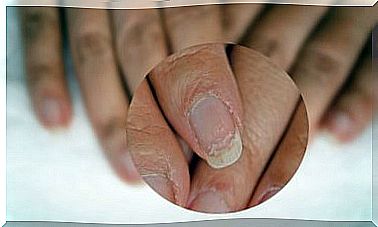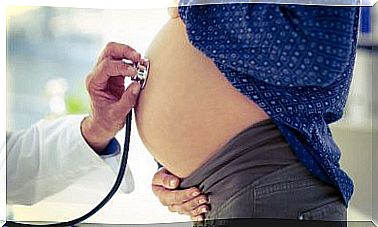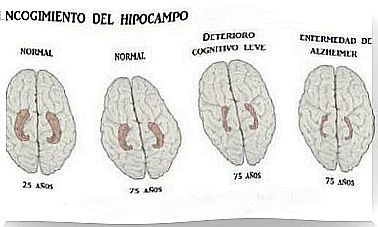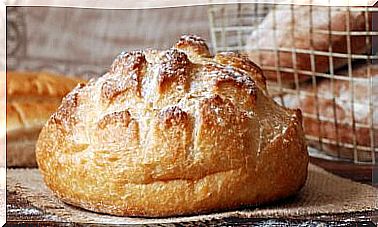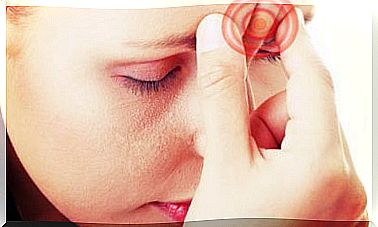The Biochemical Process Of The Rebound Effect Of Low-calorie Diets
The rebound effect occurs when, after following a hypocaloric diet and losing weight, there is a new increase in fat mass. This situation is characteristic of excessively restrictive diets, which cause changes at the hormonal level, apart from generating a high feeling of anxiety.
Next, we are going to explain what the rebound effect consists of, from a biochemical point of view. Knowing it you can figure out how to avoid it. In this way, the next time you go on a diet, you will be more selective when choosing the process, in order to avoid complications in the future.
The “miracle diets”
The well-known “miracle diets” or “express diets” are a very restrictive type of diet with low caloric intake that, in general, promise great weight loss in a short time. Among the dangers of this type of diet is the possibility of suffering a protein, vitamin or mineral deficiency, due to the strict conditions of the diet.
Following a diet of this type will not only cause deficits of essential nutrients in the body, causing health problems, but it will not achieve the desired effect of long-term weight loss.
To achieve this weight loss, it must be borne in mind that the most important thing is to maintain good eating habits and be consistent with them. Therefore, all those diets that promise great results in a short time are not following these principles of perseverance and acquisition of habits.
On the contrary, miracle diets focus on restricting caloric intake, causing a rapid weight loss effect, but causing certain biochemical imbalances in the body that end up causing the rebound effect. This effect, in short, is nothing more than the recovery of the kilos that have been lost once the objective has been met.

Consequence of not having acquired good eating habits
The anxiety that is generated as a result of having followed a very restrictive diet is one of the causes of the rebound effect. As a consequence, once the diet is finished, the person who has followed it tends to regain weight very quickly by returning to previous habits or even increasing the intake of the “forbidden foods” during the diet.
This causes the sacrifice that was made during the diet to be lost by quickly reverting to old habits. In this way, we must not forget that the most important thing to lose weight is to learn to eat healthy and not restrict certain foods strictly for a season. In fact, scientific evidence suggests several ways to achieve weight loss beyond a heavy calorie restriction. Intermittent fasting could be one of them.
It is very important to follow maintenance diets that are not based on following a specific menu, but on learning to eat wisely, knowing what foods the body needs, and in what quantities. Another of the fundamental bases of these diets is the realization of physical exercise on a regular basis.

Rebound effect as a consequence of metabolic changes
In addition to the feeling of anxiety, a series of metabolic alterations can occur in the body from caloric restriction. Due to these changes, a rebound effect may be generated more easily.
Rapid loss of body weight
Another reason for the rebound effect is that during weight loss on low-calorie diets, the body sets off biochemical alarms. Drastically reducing carbohydrate intake causes the body to use up its stores, through a process called gluconeogenesis.
In gluconeogenesis, glucose synthesis occurs from non-carbohydrate precursors, these precursors can be fat stores, but also muscle mass. In conditions of low carbohydrate intake, weight loss may be due to a reduction in muscle mass.
This is one of the reasons that explains the rapid weight loss of the “miracle diets”, since these kilos that are lost come mainly from the loss of muscle and water (sometimes favored by taking diuretics).
In any case, reducing the body’s muscle mass is never recommended. There are articles that link a loss of this tissue and strength with an increased risk of death.
Reduction of muscle mass
When there is a decrease in muscle mass, the body responds by decreasing energy expenditure, as a result, hunger increases and energy storage is promoted (the body prepares for these restrictive conditions).
In addition, hormones play a very important role in the rebound effect, which ultimately control the body’s metabolism. Having followed a hypocaloric diet also has consequences on the hormonal regulation of the body. In this way, insulin levels remain low during carbohydrate restriction, but skyrocket at the end of the diet and re-intake.
Ultimately, the body is prepared for the accumulation of reserves, because a time of “scarcity” has passed. And in this way the dreaded rebound effect is suffered.
Avoid extreme caloric restriction to avoid the rebound effect
In conclusion, we must be careful with the so-called “miracle diets”, since they often do not provide real benefits to the body and, on the contrary, expose it even more to various risks.
If we want to lose weight, the most appropriate thing is to consult a doctor, follow his instructions and in parallel, maintain good, consistent and constant lifestyle habits.
It is not necessary to go hungry, eat little and deprive yourself of everything, but learn to eat well, depending on the needs of the body.

